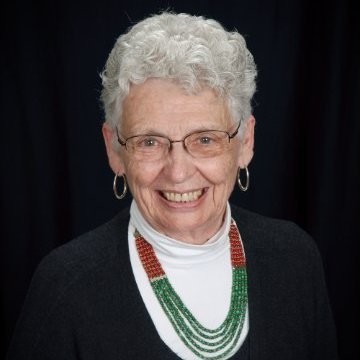The University of Iowa Eight Over 80 Award
Jean Lloyd-Jones (71MA)
Jean Lloyd-Jones has devoted much of her life to helping women pursue careers in politics.

Born in Washington, DC, Lloyd-Jones spent her childhood in New Mexico where her father was a lawyer who served in the state legislature while going to law school. She earned a master’s degree in history from Iowa and served two terms as state president of the League of Women Voters. In 1979, Lloyd-Jones was elected to the Iowa House of Representatives and served four times before being elected to two more terms in the Iowa Senate. As a state legislator, she helped form a support group for women pages—which later became the Legislative Women’s Caucus—and managed the "Buckle Up Baby" bill and the first legislation in the nation requiring all state board and commissions to be gender balanced.
Her political influence went far beyond the capital, though, working toward equality for women in politics. She conceived the idea for the Iowa Peace Institute, worked to build and fund that organization, and served as its chair for the first eight years. Most recently, she has worked as an advocate to increase the number of women involved in politics in the state by helping to make the history of Iowa women in politics more accessible to the public, including through a gift to the UI-based Iowa Women's Archives.
